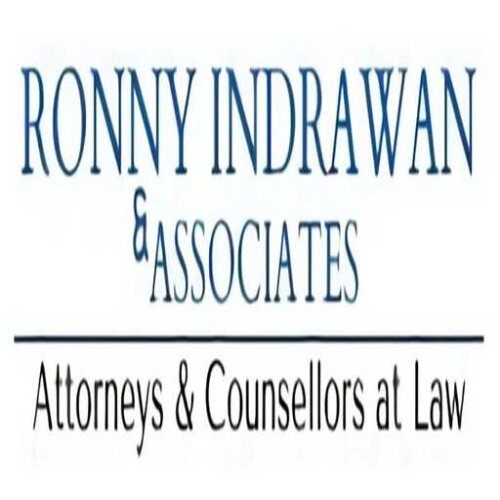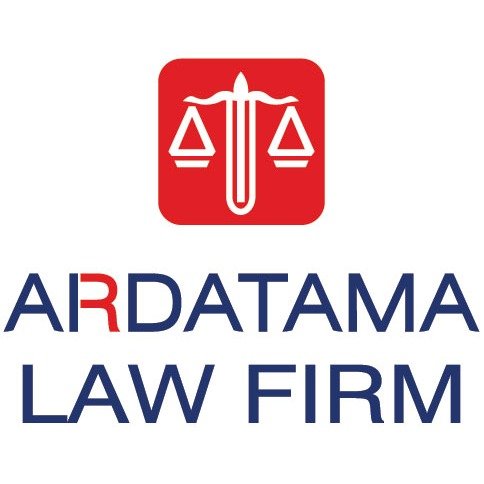Best ESG Advisory & Compliance Lawyers in Indonesia
Share your needs with us, get contacted by law firms.
Free. Takes 2 min.
Or refine your search by selecting a city:
List of the best lawyers in Indonesia
About ESG Advisory & Compliance Law in Indonesia
Environmental, Social, and Governance (ESG) Advisory & Compliance refers to the processes, regulations, and standards designed to ensure that businesses operate responsibly regarding their environmental impact, social responsibilities, and internal governance. In Indonesia, the field of ESG has gained significant traction, driven by both local regulatory demands and international market expectations for sustainable and ethical business operations. The Indonesian government, through various laws and agencies, has introduced obligations and guidance encouraging or requiring companies to align their strategies with ESG principles. Businesses operating in Indonesia must navigate complex frameworks relating to environmental protection, workers’ rights, anti-corruption, and corporate reporting.
Why You May Need a Lawyer
Seeking legal assistance in ESG Advisory & Compliance may become essential for several reasons. Multinational and local companies often require clarity on rapidly evolving regulations to avoid costly penalties or reputational risks. Situations that often necessitate legal guidance include compliance with environmental laws, social reporting requirements, labor law adherence, regulatory due diligence for investments, issuance of sustainability reports, or integrating ESG into company policies. A lawyer can help interpret laws, liaise with regulators, develop or audit compliance programs, and represent companies during investigations or disputes. Lawyers with ESG experience ensure businesses are prepared for both present requirements and future expectations.
Local Laws Overview
Several key Indonesian laws, regulations, and regulatory bodies are critical in the context of ESG Advisory & Compliance:
- Law No. 32 of 2009 on Environmental Protection and Management: Mandates environmental business licensing, impact assessments, and pollution prevention.
- Law No. 13 of 2003 on Manpower (amended by the Omnibus Law): Sets standards for labor conditions, worker safety, and social protections.
- Financial Services Authority (OJK) Regulation No. 51/POJK.03/2017: Requires banks, public companies, and issuers to publish sustainability reports and integrate ESG criteria into their annual reporting.
- Law No. 40 of 2007 on Limited Liability Companies: Includes provisions for corporate social responsibility (CSR) for companies operating in natural resources.
- Anti-corruption laws, such as Law No. 31 of 1999 and its amendments: Mandate ethical governance and transparency.
Regulatory oversight is provided by bodies including the Financial Services Authority (OJK), Ministry of Environment and Forestry, Ministry of Manpower, and the Corruption Eradication Commission (KPK). Attention to both domestic and cross-border ESG expectations is important for businesses involved in international trade or investment.
Frequently Asked Questions
What is ESG Advisory & Compliance?
ESG Advisory & Compliance focuses on helping businesses meet their responsibilities related to environmental preservation, social impact considerations, and ethical corporate governance, ensuring adherence to relevant local and international standards.
Is ESG compliance mandatory in Indonesia?
Certain ESG-related requirements are mandatory, especially for publicly listed companies, financial institutions, and companies in the natural resources sector. All companies are subject to general environmental and labor laws, but the extent of mandatory ESG reporting may differ.
What happens if my company does not comply with ESG regulations?
Non-compliance can lead to administrative fines, suspension of business licenses, criminal sanctions, lawsuits, or reputational damage, depending on the nature and severity of the breach.
How does ESG impact foreign investment or partnerships?
International investors increasingly assess Indonesian partners or targets for ESG risks. Strong ESG performance can be a deciding factor in partnerships or funding, while defects in compliance may deter investment.
Which government agencies oversee ESG compliance?
Key agencies include the Financial Services Authority (OJK), Ministry of Environment and Forestry, Ministry of Manpower, and the Corruption Eradication Commission (KPK).
Does my company need to prepare a sustainability or ESG report?
If your company is a public company, bank, or certain types of issuer, yes. Other companies should evaluate legal requirements based on their size, sector, and activities.
Are there international ESG standards applicable in Indonesia?
Many companies voluntarily align with global frameworks such as the Global Reporting Initiative (GRI), Task Force on Climate-related Financial Disclosures (TCFD), and United Nations Sustainable Development Goals (SDGs), especially if they deal with international stakeholders.
How often should a company audit its ESG compliance?
It is advisable to review and update ESG compliance programs at least annually or when there are significant legal or operational changes.
What documentation should my business maintain to show ESG compliance?
Essential records include environmental permits and reports, labor and social responsibility records, internal governance policies, and documented sustainability or ESG reporting if applicable.
Can individuals report ESG violations in Indonesia?
Yes, individuals can report environmental, labor, or governance violations to relevant regulatory authorities, such as the Ministry of Environment and Forestry or KPK, often anonymously.
Additional Resources
- Financial Services Authority (OJK): For guidance on ESG reporting and sustainability requirements.
- Ministry of Environment and Forestry: For environmental permitting, impact assessments, and regulatory matters.
- Ministry of Manpower: For labor standards, workplace health and safety, and social responsibility.
- Indonesia Stock Exchange: ESG disclosure practices for public companies.
- Indonesian Sustainable Finance Initiative (IKBI): For ESG best practices and industry resources.
- Corruption Eradication Commission (KPK): For governance and anti-corruption compliance.
Next Steps
If you require legal advice or assistance in ESG Advisory & Compliance, start by assessing your organization’s current compliance status. Gather relevant corporate documents, licenses, and policies. Consult with a legal professional who has experience in Indonesian ESG regulations to conduct a compliance audit, help develop or update internal policies, and assist with reporting obligations. Proactively address legal risks by staying informed about legal developments and best practices. Engage with industry groups and consider scheduling a consultation to discuss your needs in detail. Early legal guidance can help you manage compliance risks and achieve your business sustainability goals.
Lawzana helps you find the best lawyers and law firms in Indonesia through a curated and pre-screened list of qualified legal professionals. Our platform offers rankings and detailed profiles of attorneys and law firms, allowing you to compare based on practice areas, including ESG Advisory & Compliance, experience, and client feedback.
Each profile includes a description of the firm's areas of practice, client reviews, team members and partners, year of establishment, spoken languages, office locations, contact information, social media presence, and any published articles or resources. Most firms on our platform speak English and are experienced in both local and international legal matters.
Get a quote from top-rated law firms in Indonesia — quickly, securely, and without unnecessary hassle.
Disclaimer:
The information provided on this page is for general informational purposes only and does not constitute legal advice. While we strive to ensure the accuracy and relevance of the content, legal information may change over time, and interpretations of the law can vary. You should always consult with a qualified legal professional for advice specific to your situation.
We disclaim all liability for actions taken or not taken based on the content of this page. If you believe any information is incorrect or outdated, please contact us, and we will review and update it where appropriate.
Browse esg advisory & compliance law firms by city in Indonesia
Refine your search by selecting a city.

















